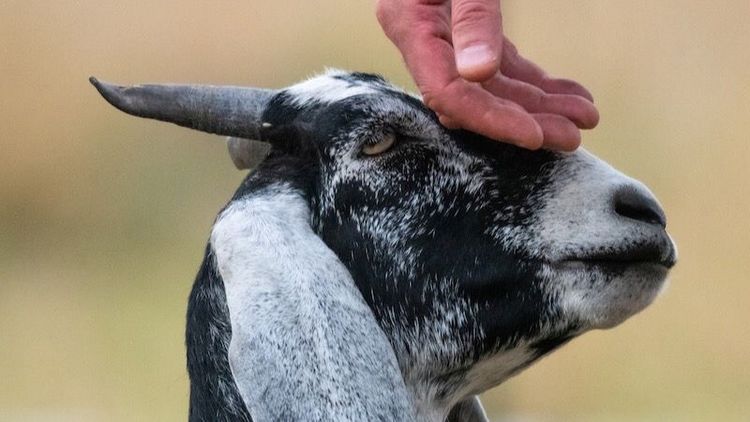How sanctuaries affirm a vegan life
Ten years ago, when I was a new vegan, I listened to an interview on Our Hen House - an amazing vegan media organization whose podcast features animal activists, artists, and other heroes every week - with Timothy Pachirat, the author of Every Twelve Seconds: Industrialized Slaughter and the Politics of Sight. In the interview, Pachirat spoke about his book, which is about being undercover at an American slaughterhouse, revealing the horrors of a modern cattle farm where a cow is killed every twelve seconds and showing to what lengths the industry goes to keep these violent realities from view.
What struck me most about this interview wasn’t Pachirat’s descriptions of his months undercover and the gruesome realities of industrial farming but his own transformation, which happened not during his time at the slaughterhouse but while visiting a sanctuary with his daughter. In the interview, he says, “It wasn’t until I visited a farm sanctuary in Woodstock - the Woodstock Farm Animal Sanctuary - that I made the connection in a way that was personally transformative between what I had experienced in the slaughterhouse and the choice I was making in how I ate.” This sanctuary visit was transformative not only for Pachirat but for his daughter, nine years old at the time, who declared she would be vegan after that visit.
For some vegans, it helps to be reminded of the cruelty involved in animal agriculture; knowing that we are saving animals from this violence reinforces our decision to be vegan. One friend of mine, when she first gave up meat, would watch a film like Earthlings or undercover footage from Mercy for Animals whenever she found herself tempted to go back to her former way of eating. During the transition, it helped her to be reminded of why she’d become vegan: to prevent animal cruelty.
Yet for some of us, watching films or undercover footage or reading about these issues can be difficult - and this is why sanctuaries offer an amazing way to reaffirm our choices. Being around pigs, cows, chickens, and other farm animals allows us to get to know them as individuals, and it’s an experience that is far more positive than heart-breaking - these are the animals who have been saved, and we get to see them living natural, happy lives.
Below are a few ways to get involved with one of your local sanctuaries. Even if you are a committed vegan who doesn’t feel the need to affirm your vegan life, it’s still a joy to visit rescued animals. Most sanctuary animals love visitors, and for us, gaining a few new (nonhuman) friends is always a wonderful thing.
• Find a sanctuary in your area and see whether if offers tours. Some sanctuaries have suspended visits due to Covid, but as things open up, you may be able to visit the sanctuary, meet and snuggle with some animals, and learn their stories.
• Plan a sleepover. Many sanctuaries offer overnight visits on or near their property, which allows you to immerse yourself in the sounds and sights of happy animals in the early and late hours. You may even have the opportunity to accompany care managers on their chores - it’s so much fun to feed rescued animals or let them out of the barn to welcome the day.
• Volunteer. Sanctuaries can always use a helping hand, whether assisting with the animals themselves or doing other essential work, such as cleaning or helping with outreach or social media. Most sanctuaries rely on volunteers to keep their organizations going, so whatever your contribution may be, it is sure to be invaluable.
• Donate. If you have anything to spare, it will go to good use; sanctuaries have a lot of mouths to feed, and rescued farm animals usually have medical issues and expenses. Once you find a sanctuary that you know does great work, consider supporting them as you’re able; it will help them continue to save animals and educate humans. You may even be able to “adopt” a specific animal and care for his or her needs in her new forever home.
Midge Raymond is the author of the novel My Last Continent and is co-founder of Ashland Creek Press, a boutique publisher devoted to environmental and animal literature.
If you enjoyed this, you may like to read our article which discusses animal sanctuaries to support across the UK, or find out why we think that every animal has a unique personality.
